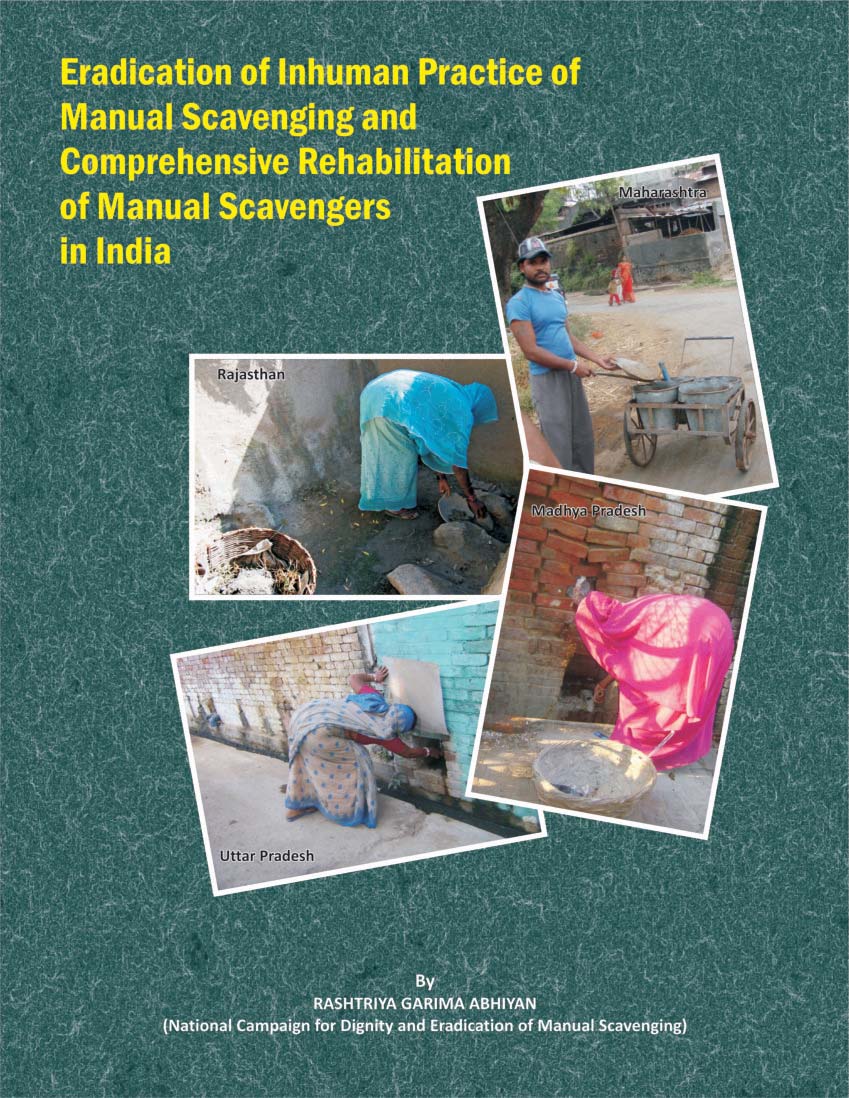 The practice continues in the country in spite of efforts of several people, implementation of government schemes such as the National Scheme for Liberation and Rehabilitation of Scavengers since 1992 and Self Employment Scheme for Rehabilitation of Manual Scavengers since 2007, and regardless of it being banned in 1993 through a central legislation.
The practice continues in the country in spite of efforts of several people, implementation of government schemes such as the National Scheme for Liberation and Rehabilitation of Scavengers since 1992 and Self Employment Scheme for Rehabilitation of Manual Scavengers since 2007, and regardless of it being banned in 1993 through a central legislation.
Those involved in manual scavenging not only suffer from the inhuman pain of scavenging human faeces but also go through the unbearable pain and humiliation of discrimination, untouchability and social exclusion.
The report makes the following recommendations related to the emancipation of manual scavengers -
- The government should introduce a bill to amend the Employment of Manual Scavengers and Construction of Dry Latrines (prohibition) Act, 1993, to provide for action against the District Collector and the Chief Secretary of a State that has been found to harbour the practice of manual scavenging. The bill should also provide for imprisonment and financial penalties against the officials of the urban local bodies, panchayats and government offices responsible for continued existence of dry latrines either in their own premises or within their jurisdictions.
- The amendment should increase the duration of imprisonment and the amount of fines for the owners of dry latrines.
- The Government of India, through a new legislation, should apologize to them who have suffered for generations due to this inhuman practice.
- The amendment to Employment of Manual Scavengers and Construction of Dry Latrines (prohibition) Act, 1993, must also clearly define manual scavenging and widen this definition to include all kinds of work that involve manual clearing of excreta. The rehabilitation of the victims must also be incorporated into the Act.
- Manual Scavenging should be added to Section 3.1.6 of The Scheduled Castes and Tribes (Prevention of Atrocities) Act, and those Officers who are responsible for putting an end to this practice but are not carrying out their duties should be punished under Section 3.2.7 of this Act.
- Those involved in this practice should be identified, liberated and should be provided with a certificate and the immediate relief amount of Rs.20,000 by the District Magistrate under the provisions of Bonded Labour System (Abolition) Act, 1976. All the liberated families should be given a priority in providing the benefits of poverty alleviation and social welfare programmes of the government.
- Indian Railways should ensure within two years that toilets in the trains are converted into a form that does away with manual handling of excreta. The Railways should also submit yearly progress reports to the Parliament on modernizing the toilets.
The report also presents recommendations related to rehabilitation program for manual scavengers.